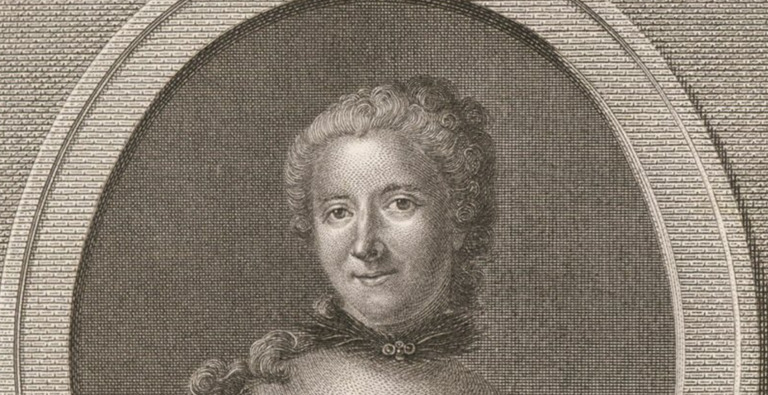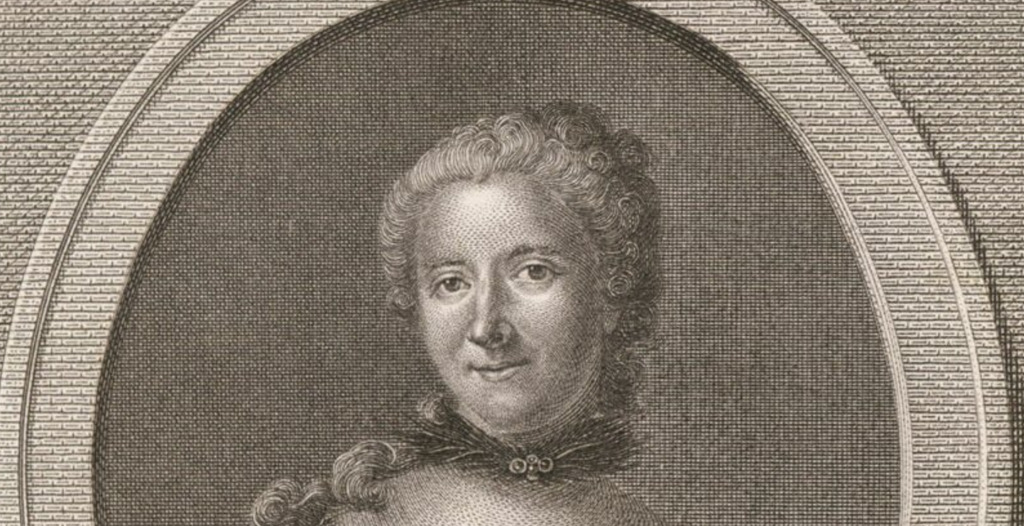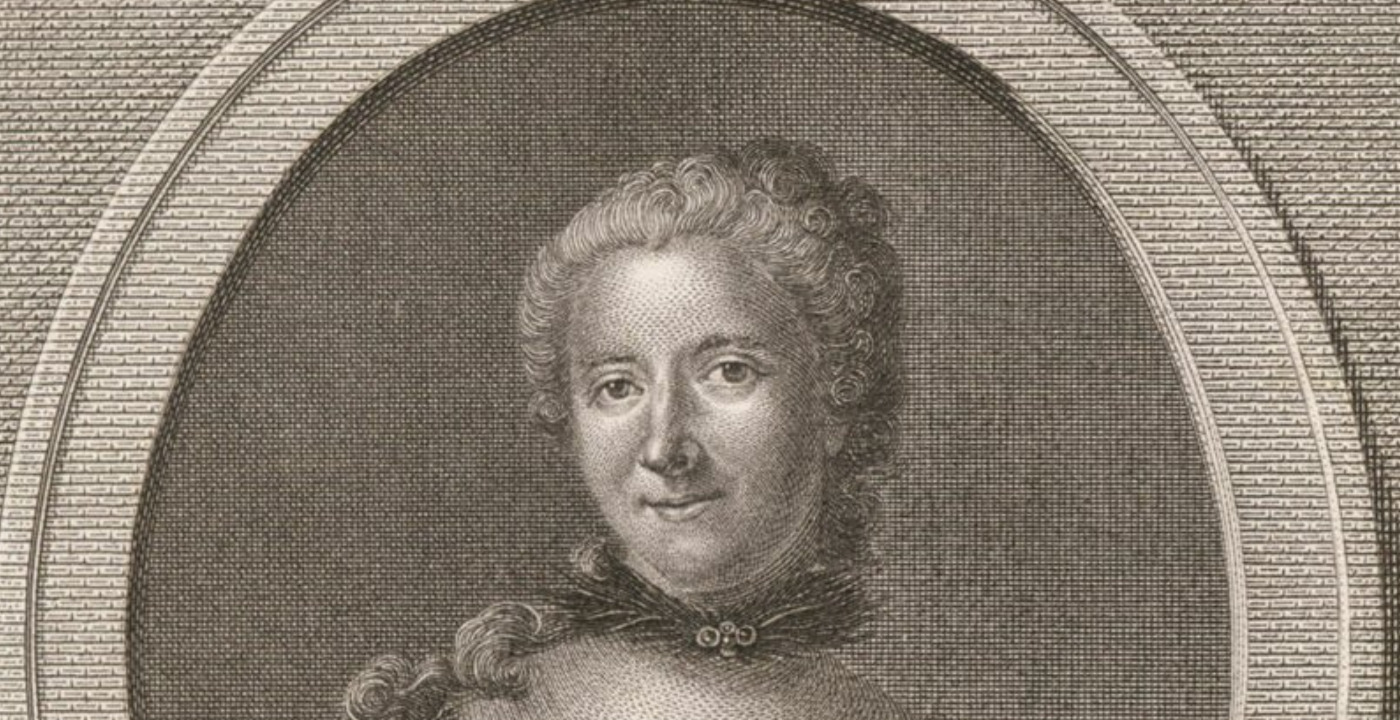I discovered the writings of natural philosopher and physicist Émilie Du Châtelet through my work in the history of philosophy. Invariably, my academic focus is on the content of a text, not on the personal life of the author. Yet, while working on Du Châtelet, and uncovering the interpretations of her in scholarly literature, I could not overlook the curious fate of her work and reputation.
In comparison to any male author of the period, Du Châtelet’s position as a philosophical author and scientist was disadvantaged. Despite important exceptions, such as Anna Maria van Schurman, Dorothea Schlözer, and Laura Bassi, women were not students at universities, let alone professors. And barring a few exceptions, amongst them Du Châtelet herself, women were not members of the national scientific academies, which ruled over the Early Modern scientific landscape. If women, despite the limitations imposed on them, wrote philosophical and scientific texts, their work was often published anonymously, under a man’s name, strongly censored, or not published at all. If a woman’s work found its way to print, it was regularly accused of unoriginality and plagiarism, misattributed, or quoted with reference to a male authority. Female authors were frequently shunned or persecuted. There is no doubt that the genesis of Du Châtelet’s main work, the Institutions de Physique, written between 1738 and 1742, arose in the context of educational and scientific suppression.
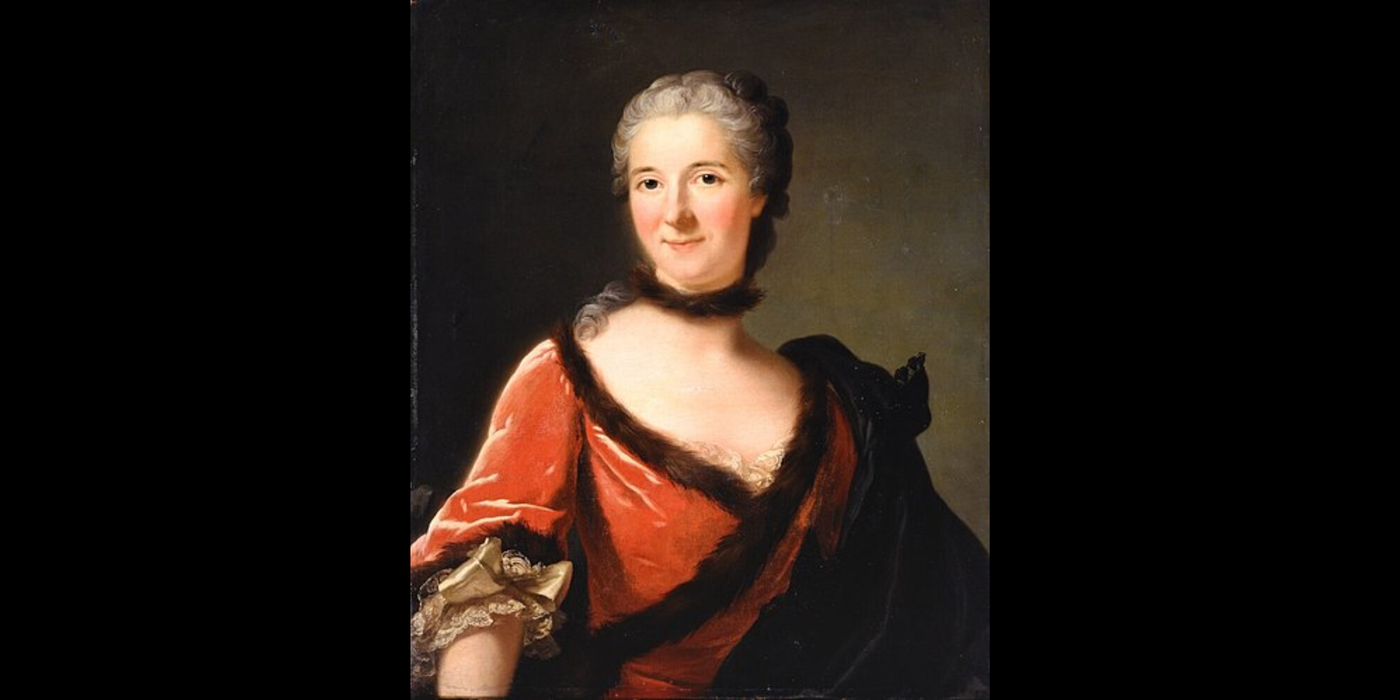
As a consequence, some questions surrounding her intentions and achievements remain frustratingly unresolved: did Du Châtelet truly intend the first chapters of Institutions de Physique to be a presentation of Gottfried Wilhelm Leibniz’s ‘metaphysical opinions,’ known to her through Christian Wolff and Samuel König, or did she guard her often astoundingly original metaphysical theory, as well as herself, against the repercussions of male oppression? Did she really intend for her book to be an educational work, dedicated to her son, as she writes in the preface, or was this guise part of a cunning and successful plan to ensure her text was published, securing it for future generations? We can only surmise from the content of her metaphysics that this was indeed the case.
Unlike important texts by male authors, like those of René Descartes, Gottfried Wilhelm Leibniz, Christian Wolff, and Isaac Newton, her book found its route into the history of philosophy and the sciences via a shaded and rocky path. Important passages from the Institutions de Physique, like the entry on the principle of sufficient reason in the Encyclopedia, published by Diderot and d’Alembert (the Wikipedia of Early Modern Times), were printed without her name and attributed to other writers, such as Johann Heinrich Samuel Formey. Even Immanuel Kant’s references to Du Châtelet were tainted by his problematic perspective on women. In the end, the most famous authors of French Revolution and Enlightenment pedagogy, like Rousseau, ironically reversed many of the hard-fought victories in women’s education from the Early Modern Period. Despite continuing efforts by female historians and biographical writers to save Du Châtelet’s name from disappearing from the annals of European intellectual history, the reception of her work cannot be compared to the works of similarly important male figures, such as Leibniz.
By the 20th century, Du Châtelet’s work was rarely mentioned in university classes, in literature on Early Modern philosophy, or in the history of natural philosophy or physics. If Du Châtelet was known at all, her work was hidden behind the shadows of Voltaire, Leibniz, or Newton, and she was often only mentioned as Voltaire’s lover, as Leibniz’s interpreter, or Newton’s translator.
These injustices can never be undone. They will forever remain a part of Du Châtelet’s legacy and the fate of the Institutions de Physique. However, today, there is a beacon of hope: hope that we can read and understand Du Châtelet’s work in its own right and on her terms, that we can acknowledge her significant contribution to the history of Early Modern ideas, that we can pull her name and thinking out from behind the shadows of her male colleagues, hope that we can set some things right and that her name will no longer be forgotten. In order to do this, to bring light to the curious fate of Du Châtelet’s contributions, we must turn to the content of her work, see what it says, grasp its subject matter, and read it not because it was written by a woman but because it is a work of science that deserves to be taken seriously.
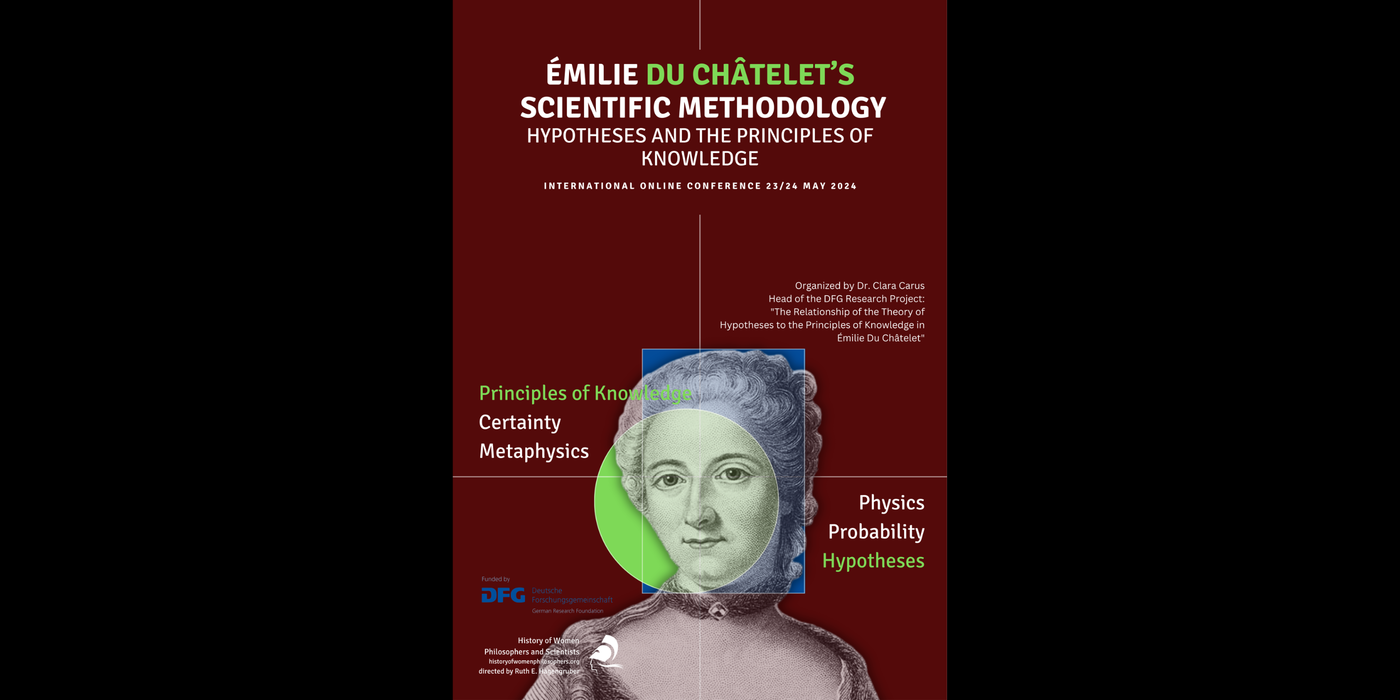
Clara Carus is Alexander von Humboldt Fellow at Harvard University (Department of Philosophy). She is specialized on Early Modern Philosophy with a particular focus on Émilie Du Châtelet and Leibniz. She works on metaphysics, in particular on the principles of knowledge (PC and PSR) and the concepts of time and space. Clara Carus studied in Freiburg, Oxford and Harvard and gained her PhD summa cum laude in Freiburg in 2018 with a book on Heidegger and Kant on the concept of time. From 2018-2020 she was a postdoc at Harvard University with a project on the exclusion of the senses from the root of scientific knowledge in the early modern rationalists. From 2020-2022 she was Assistant Professor at the Center for the History of Women Philosophers and Scientists where she founded New Voices on Women in the History of Philosophy and worked with Jeffrey McDonough on the project "Émilie Du Châtelet in Relation to Leibniz and Wolff - Similarities and Differences". In 2023 she was Associate Faculty and Postoc at the University of Oxford with a book project on the PSR in Du Châtelet. From October 2023 to July 2024 she was head of a DFG research project on Du Châtelet's theory of hypotheses in relation to the principles of knowledge, based at the Center for the History of Women Philosophers and Scientists in Paderborn. Currently, she is completing a monograph on Émilie Du Châtelet's Metaphysics.
